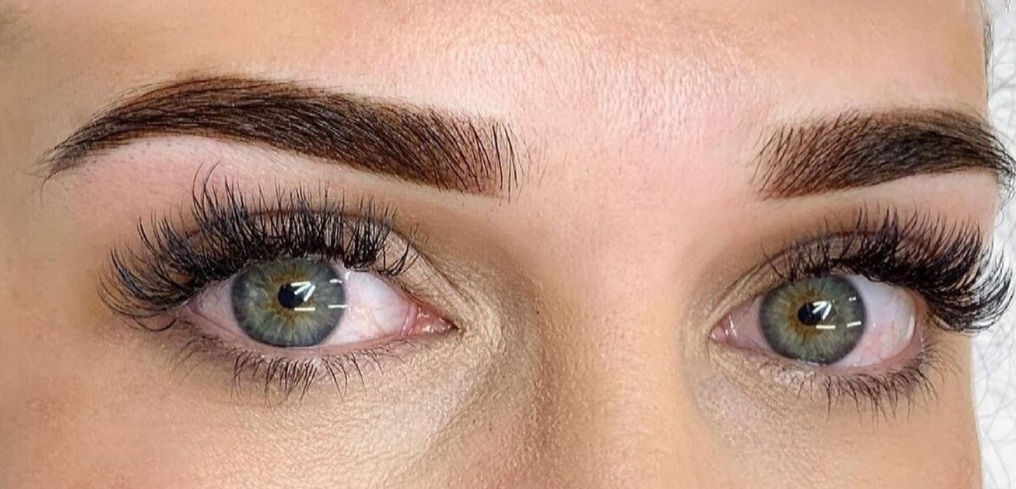Enhancing our eyebrows, through methods like microblading, combination brows, and ombre brows, has become increasingly popular, contributing to our facial framing and overall appearance. Understanding the nuances between different eyebrow enhancement methods is essential for making informed choices.
This article delves into the distinctions between two widely sought-after techniques: Ombre and Combination Eyebrows. By the conclusion, you’ll have a comprehensive grasp of each approach, aiding you in selecting the one best suited to your preferences and aesthetic goals.
Ombre Eyebrows
Ombre eyebrows have garnered attention for their subtle and natural results. Also, This method entails crafting a gradient effect, with the brows appearing lighter at the front and gradually darkening towards the tail. Here’s what to know about Ombre eyebrows:
Technique: Ombre eyebrows involve employing a specialized shading technique. Using microblading or microshading tools, the brow artist deposits pigment into the skin, creating tiny dots or lines mimicking natural brow hairs.
Natural Appearance: Ombre eyebrows offer a soft and natural look, thanks to the shading technique producing a powdery effect reminiscent of filled-in brows with makeup.
Suitability for All Skin Types: Ombre brows accommodate various skin types, including oily or mature skin. Moreover, The shading technique contributes to a longer-lasting outcome compared to conventional microblading.
Low Maintenance: Requiring minimal touch-ups and upkeep, Ombre brows gradually fade over time, yielding a softer appearance.
Pros:
– Longer-lasting results
– Compatibility with most skin types
– Fuller and more defined appearance
– More natural-looking than in the past
Cons:
– Concerns about unnatural appearance
– Reputation

Combination Eyebrows
Combining microblading and shading, Combination eyebrows offer versatility, resulting in a defined and textured look. Here’s what to understand about Combination browse:
Technique: Combination eyebrows entails using microblading for hair-like strokes at the front of the brows, coupled with shading towards the tail to achieve fullness and definition.
Defined and Textured Look: This technique yields a structured appearance, blending natural-looking strokes with shading for depth and dimension.
Versatility: Combination brows are customizable to match diverse preferences and face shapes. Furthermore, Brow artists can adjust stroke intensity, shape, and color to achieve desired results.
Touch-Up Maintenance: Due to microblading’s involvement, Combination brows may require more frequent touch-ups compared to Ombre brows. Additionally, Hair-like strokes tend to fade faster, necessitating maintenance to uphold the desired aesthetic.
Recommended Reads
Pros:
– Natural-looking result
– Versatility
– Textured appearance
– Suitable for different skin types
– Long-lasting results
Cons:
– Higher cost
– More frequent touch-ups
Conclusion
Deciding between Ombre and Combination eyebrows hinges on individual style, desired outcome, and maintenance preferences. Ombre brows offer a soft, natural look, while Combination brows deliver definition and texture. Furthermore, Consulting a skilled brow artist is essential for determining the ideal technique based on face shape, skin type, and aesthetic objectives. With the right approach, you can achieve beautifully enhanced eyebrows that complement your overall appearance.
FAQ’s
Which is better, combo brows or ombre brows?
How long do combination brows last?
Are combo brows better than microblading?
Both Combo Brows and Microblading have their advantages and considerations. Combo Brows offers a combination of microblading and shading, resulting in a defined and textured look. On the other hand, Microblading alone creates hair-like strokes for a more natural appearance. The choice between the two techniques depends on personal preference, desired outcome, and factors such as skin type. Consulting with a skilled brow artist is crucial in determining which technique is best suited for you.

